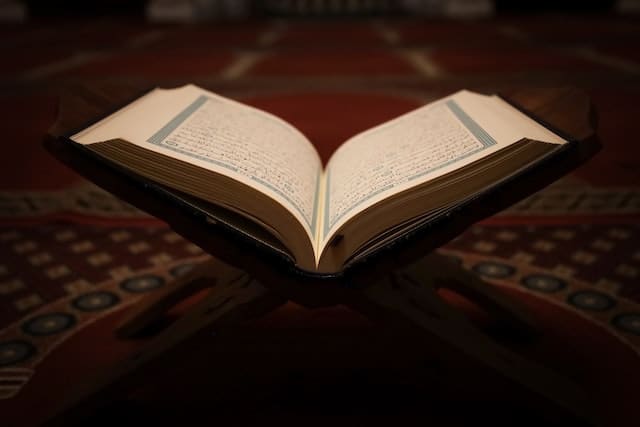The Quran is the soul

The Quran is a soul
In the last two verses of Surat ash-Shura, Allah describes the Quran:
وَكَذَٰلِكَ أَوۡحَيۡنَآ إِلَيۡكَ رُوحٗا مِّنۡ أَمۡرِنَاۚ مَا كُنتَ تَدۡرِي مَا ٱلۡكِتَٰبُ وَلَا ٱلۡإِيمَٰنُ وَلَٰكِن جَعَلۡنَٰهُ نُورٗا نَّهۡدِي بِهِۦ مَن نَّشَآءُ مِنۡ عِبَادِنَاۚ وَإِنَّكَ لَتَهۡدِيٓ إِلَىٰ صِرَٰطٖ مُّسۡتَقِيمٖ
And thus We have revealed to you a revelation (ruhan) of Our command. You did not know what is the Book or [what is] faith, but We have made it a light by which We guide whom We will of Our servants. And indeed, [O Muhammad], you guide to a straight path [42:52]
This is the only place in the Quran where Allah uses the word ruh (soul) to refer to the revelation.
We know the ruh as the thing that makes us live: when Allah takes the ruh out of the body, we die.
In this ayah, He is telling the Arabs that they were dead before this ruh was revealed to them, so they should appreciate it and embrace it, not fight it and deny it.
Only Allah knows the reality of the soul
In Surat al-Isra, Allah says, ‘They ask you about the ruh; say: “The soul is my Lord’s command.”’ No one knows the reality and the characteristics of the ruh.
We can see a reflection of it in our bodies, but no one can truly identify it, not even prophets and messengers.
When the Companions asked the Prophet (peace be on him), he said this was from the command of Allah, he didn’t know unless Allah told him.
In this ayah, Allah is saying the Quran is a ruh – ruh for the body, for society, for any community or nation. And if you don’t have this ruh, you are like the walking dead.
Any community without revelation is like a body without a ruh.
Any action without ruh is a dead action – it will not be counted or recorded.
Sincerity is the soul of action
Ibn ‘Ata Allah al-Iskandari, an 8th century Maliki and Sufi scholar, said actions are lifeless bodies, but ikhlas (sincerity) is what gives them life.
Ikhlas is the ruh of action, the core of its acceptance. This is one half of the conditions of acceptance: Ibn ‘Ata is highlighting one side, and he didn’t mention the other because it goes without saying.
It’s stating the obvious, but the other part is that it has to be in accordance with Shari’a.
You might have a very sincere intention, but if it’s not in accordance with Shari’a, it will not be accepted no matter what.
The Quran is a light
In the ayah, Allah is saying that this ruh has been given to you, O Muhammad, and to your community and all humanity until the Day of Judgement. ‘You did not know of this Book and the details of faith.’ Before this, the Prophet (peace be on him) had a general imaan (faith), but not imaan with details.
‘We have made it a light, by which We guide whom We please from among Our servants.’ [42:52]
This is one of the most beautiful verses of the Quran: you can recite it over and over, and every time gives you different reflection.
The message from Allah to all of us is that we can’t survive without the ruh, so we need to live by the Quran. Inshallah let’s activate this in our families and communities, and be among those whom Allah accepts. Ameen.
Shaykh Haytham Tamim – Ramadan Night 12
Transcribed by Hana Khan
Related posts
The Quran: the spirit of our life
Ghazali on Remembering Death – the nature of the soul
How to turn an ordinary fast, into a super fast
What is the connection between closeness to Allah, excellence and fasting?
- The truth is more powerful than lies
- Does a bride’s wali have to be Muslim?
- Is is permissible to lead a salah split over different rooms?
- Global IT outage. When systems go down…
- The concept of worship. What are ibadah and ihsan – and how do they lead to self development?

Recommended Posts

The truth is more powerful than lies
July 26, 2024

Global IT outage. When systems go down…
July 19, 2024

